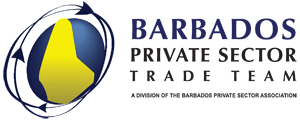French PM outlines obstacles to Canada-EU trade deal
French Prime Minister Jean-Marc Ayrault expressed hope that Canada and the European Union would reach a trade deal soon but he indicated that several key issues remain unresolved.
“There remains a final phase that we must overcome,” Mr. Ayrault told reporters Thursday after meeting Stephen Harper in Ottawa. Canada and the EU have been negotiating a trade agreement since 2009 with the goal of having it in place by the end of 2012. But negotiations have stalled and Mr. Ayrault indicated that the major stumbling blocks are trade in agricultural goods – in particular beef, poultry and pork products – as well as patent protection and cultural diversity.
Economy Lab
Video: Lots of smoke but little fire in Canada-EU trade talks
The EU is believed to be seeking better protection for pharmaceutical patents, access to Canada’s supply-managed dairy system and the ability to sell to provincial Crown corporations. Canada wants lower EU duties on Canadian-made cars and better access for beef and pork exports. Last month, EU Trade Commissioner Karel De Gucht threatened to scrap the talks unless Canada offered more.
Canada had hoped to conclude a deal with the EU before the union begins negotiations with the United States. It’s not clear now if that will happen, meaning Canada could get left behind as the EU shifts gears toward the United States. Canadian officials have estimated that a trade deal with the EU would boost two-way trade by 20 per cent and create 80,000 new jobs.
On Thursday, Mr. Harper acknowledged that several key issues remain unresolved but added that Canada “will only sign a deal when we’re convinced we have a deal that’s comprehensive and in the best interests of the Canadian economy.”
Mr. Ayrault said that if a deal can be reached with Canada, it could set a framework for discussions with the United States.
In a speech later in Toronto on Thursday, Mr. Ayrault urged Canadian businesses to invest in France, saying that the country, and Europe, have made great progress in addressing economic challenges. “France is moving ahead with in-depth reform,” he told the Empire Club. “France is a country on the move.”
He even invoked French explorer Samuel de Champlain, saying that Champlain likely had no idea where he was headed when he landed in what became Quebec in the early 1600s: “Perhaps he was looking for China. But he was not fearful,” Mr. Ayrault said, adding that Champlain demonstrated the “daring to go a little bit farther.”
Mr. Ayrault outlined a variety of steps the French government has taken to address the country’s stagnant economy and growing unemployment. He said the public deficit has shrunk from 5 per cent of gross domestic product in 2011 to 4.5 per cent in 2012, still above the EU target of 3 per cent. And he said the government is committed to balancing its budget by 2017. “We are completely committed to this,” he said, adding that the government has introduced a plan to save €60-billion in four years. Eliminating the deficit will be a tall order given that most forecasters predict the French economy will stay sluggish into next year and likely beyond.
Earlier Thursday, Mr. Ayrault praised Canada’s involvement in Mali and added that France and its allies are meeting their objectives in the West African country. However, he said, France wants to begin withdrawing its 4,000 troops by the end of April and have them replaced by a United Nations’ peacekeeping force. If everything comes together, Mali would be put on the road to security, democracy and development, he said.
Mr. Harper indicated that Canada will play a long-term role in Mali, but he ruled out committing troops. “In terms of our longer-term engagement, I think you know well we are not looking to have a combat, military mission there,” Mr. Harper told reporters, adding that the C-17 aircraft Canada committed to France for the mission will remain in use “as long as we feel there is a need.”
Mr. Harper said that Canada will “be providing development and humanitarian assistance,” while adding that discussions are ongoing in terms of a further Canadian involvement. The UN has been contemplating setting up a 10,000-strong, heavily armed force in the former French colony before presidential and legislative elections in July.
“The details of what our long-term engagement may be are still the subject of discussions that we are having among our ministerial colleagues, our caucus and, as well, we’re obviously talking to the opposition parties on their preferences,” Mr. Harper said.
Details
| Date Posted | March 15 2013 |
